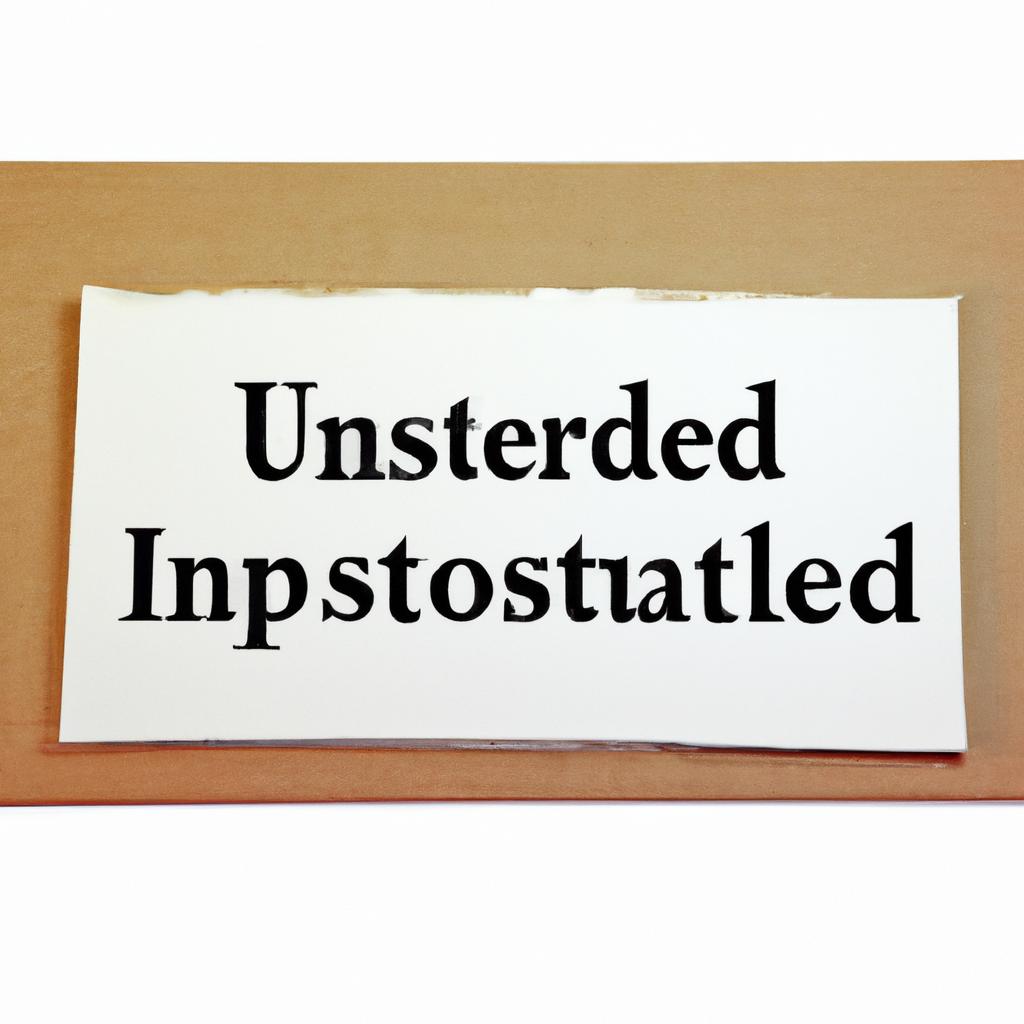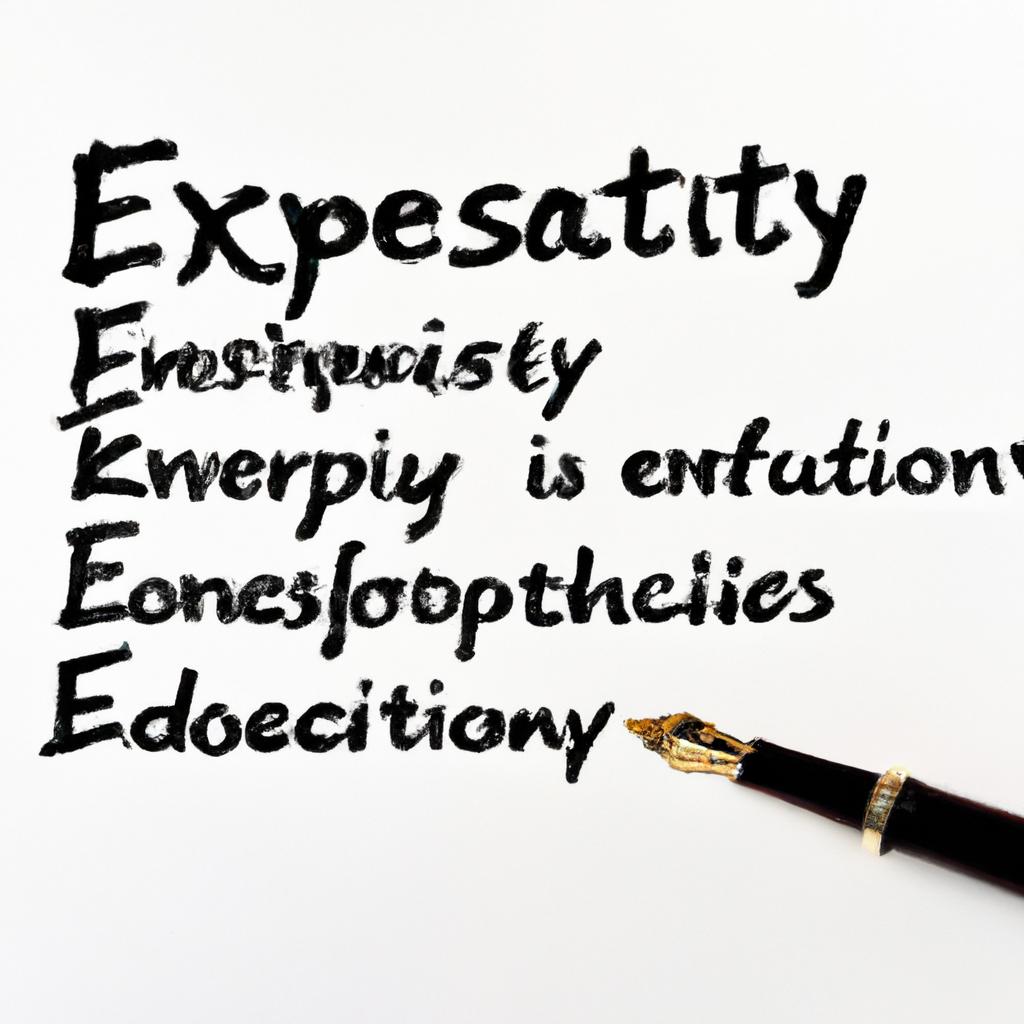In the intricate realm of estate administration, the term “insolvent estate” looms as a complex and often misunderstood concept. As seasoned practitioners in estate planning and probate law, the team at Morgan Legal Group in New York City navigates this territory with precision and expertise. In this article, we delve into the intricate nuances of what constitutes an insolvent estate, shedding light on its implications and guiding principles. Join us on this legal exploration as we unravel the intricacies of managing an insolvent estate with clarity and insight.
Understanding the Concept of an Insolvent Estate
An insolvent estate refers to a situation where the debts of a deceased person exceed the total value of their assets. When this happens, the estate is unable to fully cover its liabilities, leaving creditors at a loss. It is important for beneficiaries and executors to understand the implications of dealing with an insolvent estate, as it can be a complex and challenging process.
Key points to consider when dealing with an insolvent estate:
- The executor has a legal duty to prioritize the payment of debts in a specific order, as defined by state laws.
- Creditors may have the right to file claims against the estate to recoup the debts owed to them.
- Beneficiaries may receive reduced or no inheritance if the estate is insolvent.

Key Factors Contributing to an Estate Insolvency
An insolvent estate occurs when the debts of the deceased individual outweigh the value of their assets. There are several key factors that can contribute to an estate becoming insolvent, including:
- High levels of debt: If the deceased had significant amounts of debt, such as credit card debt, mortgages, or medical bills, this can quickly deplete the assets of the estate.
- No estate planning: Without proper estate planning, such as a Will or trust, the distribution of assets may not be handled efficiently, leading to disputes among beneficiaries and potentially costly legal battles.
- Unforeseen liabilities: In some cases, unforeseen liabilities such as lawsuits, taxes, or creditor claims can arise after the individual’s passing, further draining the estate’s resources.
| Debts | Assets |
|---|---|
| $500,000 | $300,000 |

Navigating the Legal Matters Surrounding an Insolvent Estate
When dealing with the legal matters surrounding an insolvent estate, it is crucial to understand the complexities and challenges that may arise. An insolvent estate refers to an estate where the debts owed by the deceased individual exceed the assets in the estate. In such cases, navigating the legal process can be daunting, requiring careful consideration of the following key aspects:
- Estate Administration: Managing the distribution of assets and debts in an insolvent estate requires meticulous attention to detail to ensure compliance with state laws and regulations.
- Creditor Claims: Addressing creditor claims is a crucial step in the process of handling an insolvent estate, as creditors may have the right to make claims against the estate to recoup the debts owed to them.
| Creditor | Claim Amount |
|---|---|
| ABC Bank | $10,000 |
| XYZ Credit Card Company | $5,000 |
As experienced estate planning attorneys, we at Morgan Legal Group in New York City understand the complexities involved in handling insolvent estates. Our team of professionals is well-versed in navigating the legal intricacies surrounding these matters, providing expert guidance and support throughout the process. With our knowledge and expertise, we strive to help our clients effectively resolve the challenges associated with insolvent estates, ensuring a smooth and efficient administration of the estate in accordance with the law.

Strategies for Managing and Resolving an Insolvent Estate
An insolvent estate refers to a situation where the debts owed by a deceased individual exceed the value of their assets. In such cases, it falls upon the executor of the estate to manage and resolve the financial obligations in a fair and lawful manner. Understanding the complexities involved in handling an insolvent estate is crucial for ensuring that all parties involved are treated equitably.
One of the key strategies for managing an insolvent estate is to prioritize debts based on their legal standing. Secured debts, such as mortgages or car loans, take precedence over unsecured debts like credit card bills. It is essential to carefully review the deceased individual’s financial records to accurately assess the extent of their debts and assets. Additionally, exploring options for negotiation with creditors can help alleviate the burden on the estate and potentially avoid lengthy legal proceedings. Seeking professional legal guidance from experienced estate planning attorneys can provide invaluable support in navigating the intricacies of managing and resolving an insolvent estate.
Q&A
Q: What is an insolvent estate?
A: An insolvent estate is one in which the debts of the deceased individual outweigh the assets left behind.
Q: How does someone determine if an estate is insolvent?
A: An estate is typically considered insolvent when the deceased individual’s debts are greater than the value of their assets.
Q: What happens to an insolvent estate?
A: In the case of an insolvent estate, creditors may not receive full payment for the debts owed to them. The estate may be subject to probate proceedings to determine how the assets will be distributed among creditors.
Q: Can heirs be held responsible for the debts of an insolvent estate?
A: In most cases, heirs are not personally responsible for the debts of an insolvent estate. However, any assets inherited may be used to settle the debts owed by the deceased individual.
Q: What steps should be taken if someone suspects an estate is insolvent?
A: If someone believes an estate is insolvent, they should seek the guidance of a legal professional to understand their rights and responsibilities. The executor of the estate may need to file for bankruptcy on behalf of the estate to handle the outstanding debts.
To Conclude
In conclusion, understanding what constitutes an insolvent estate is crucial for navigating the complex world of probate and estate administration. By recognizing the signs of insolvency and seeking appropriate guidance, beneficiaries and executors can protect their rights and interests during the settlement process. Remember, when it comes to managing an insolvent estate, knowledge is power. Stay informed, stay proactive, and always consult with legal professionals to ensure a smooth and equitable resolution for all parties involved. May the journey ahead be filled with clarity and resolution.

